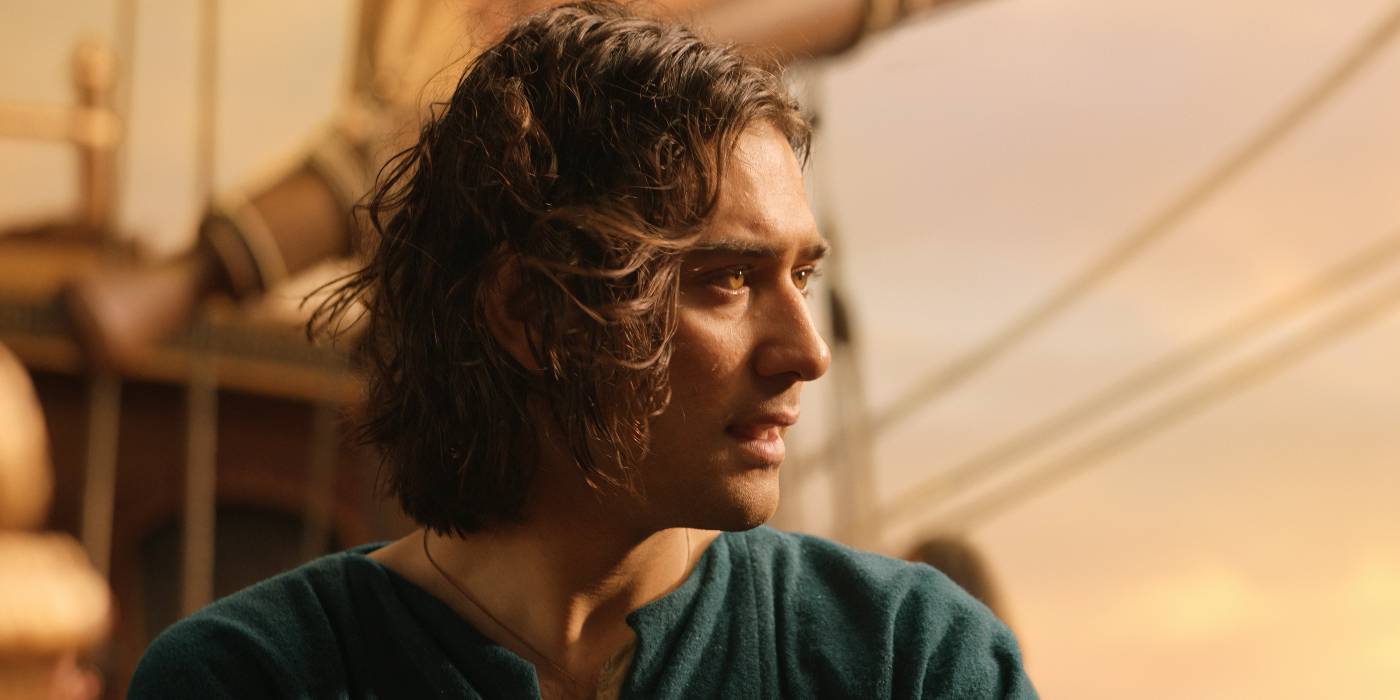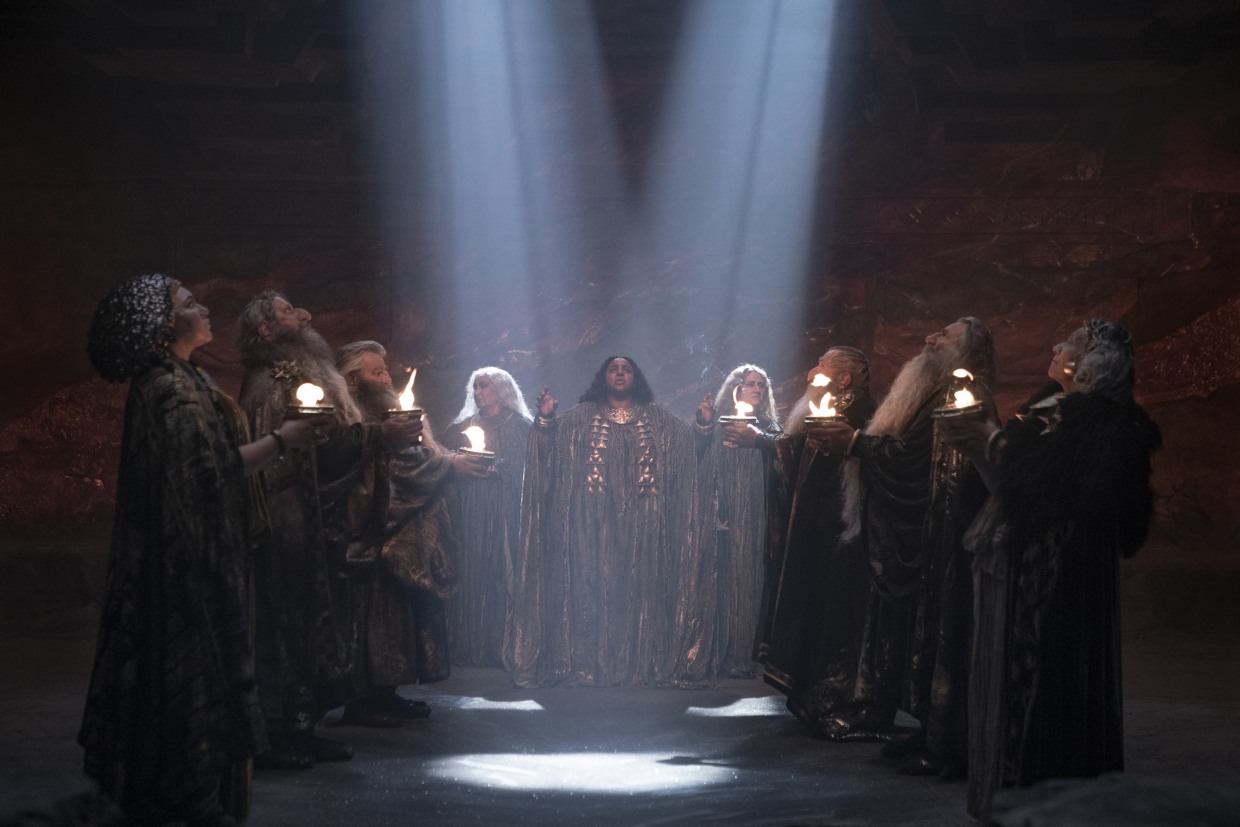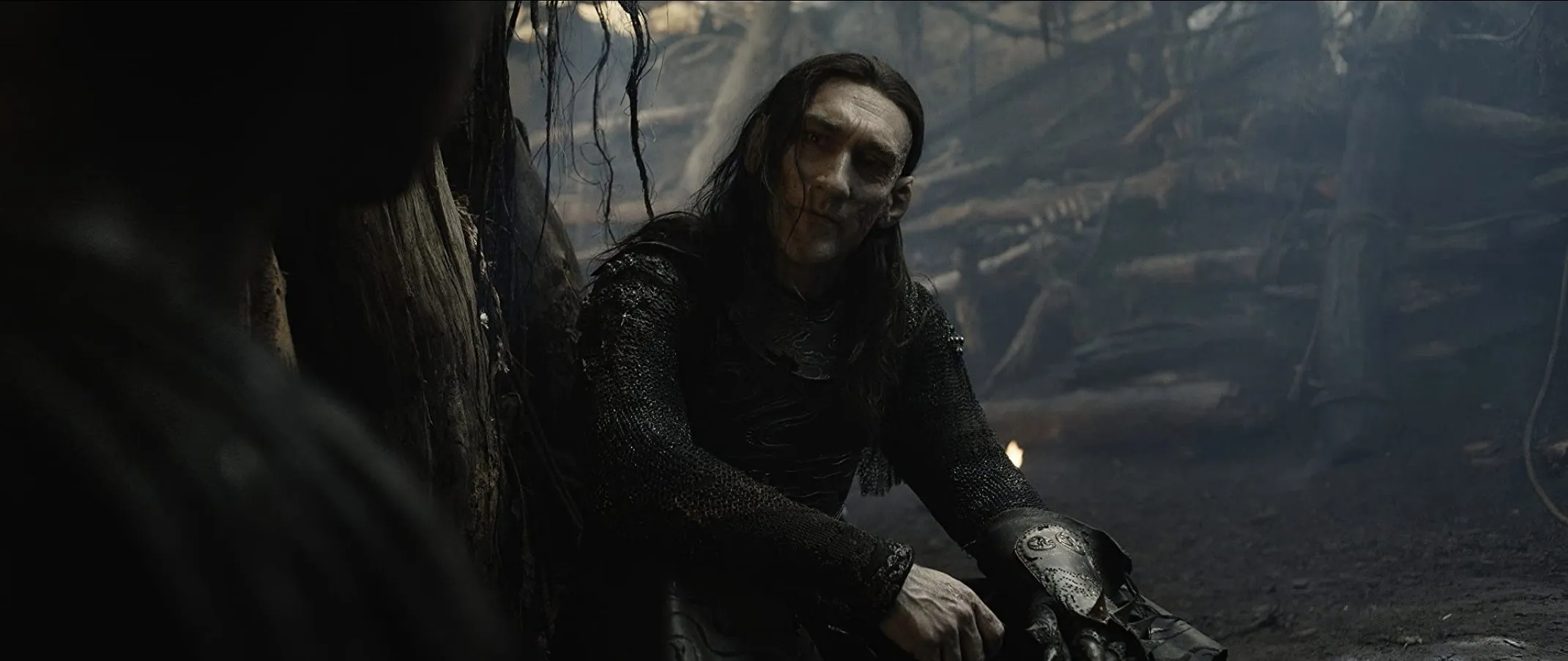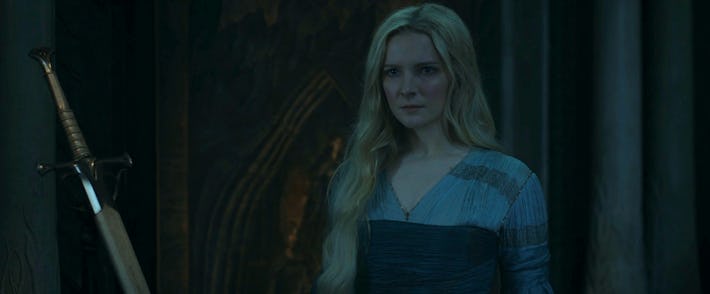We’re officially at the halfway point for The Lord of the Rings: The Rings of Power and we’re at something of an impasse. I’ve enjoyed the show thus far, but I also have to admit that the series needs to start pushing the plot forward a bit. With a runtime of over 70 minutes, not much happened this week and the series continued to showcase that some plotlines and characters are far more intriguing than others. But despite being a bit of step back from the really solid third episode, this one still had some solid moments and some deep-cut lore references for those Tolkien junkies.
Episode four opens up with a vision of its namesake: a horrifying vision of a great wave, utterly destroying the island nation of Númenor. Those new to the Second Age may be wondering what it means but those familiar with Tolkien’s work know what this vision implies. Miriel doesn’t quite understand it but knows that the catalyst for the end of the vision starts with an elf coming to the island’s shore. This explains Miriel’s extreme resistance and even prejudice against Galadriel, who is unceremoniously thrown in jail for sedition early on in the episode. It’s still a bit weird seeing Galadriel be terrible at politics but Halbrand offered some wisdom to her that should be the tipping point for her to start slowing down and analyzing things first, before jumping in swords blazing. The way Halbrand is able to whisper into the ears of both Galadriel and Ar-Pharazôn does give off strong Sauron vibes, supporting the theory that he is the Dark Lord in disguise.
/cdn.vox-cdn.com/uploads/chorus_image/image/71375653/RoP_amazon.0.jpg)
While Elendil isn’t in this episode much, the show focuses a decent amount on Númemor’s other denizens, including Pharazôn, his son Kemen (written for the show), Isildur and Eärien. Pharazôn proves himself to be a master orator and statesman, one who can influence a crowd with a few well-chosen words. This may not seem important yet, but those who know where his storyline goes can see the signs already. It’s interesting to see his devotion and professionalism in play at this point in his life. That said, the show also spends a lot of time with Isildur, whose story could’ve probably been integrated into last week’s episode and Eärien, whose story doesn’t feel like it goes anywhere this week, despite my suspicions about where her story is going (theory article coming soon).

We return to the Khazad-dûm storyline from episode 2 and the relationship between Elrond and Durin IV continues to be a high point of the show. Elrond is a slippery one, who genuinely seems invested in rebuilding his friendship with the dwarves but is also very much untroubled by spying on Dissa and Durin using his elf sight to learn about a secret mine. Upon infiltrating it and being discovered by Durin, we learn about the contents of the chest from episode 2 and (surprise!) it’s Mithril, the light as silk but harder than iron metal that’s used in the chainmail Bilbo gifts Frodo. Mithril, of course, is what’s used to forge Galariel’s future ring of power, Nenya, and Celebrimbor has made significant progress on his forge tower already (but was he wearing the same robes as episode 2?).

The rest of the episode was dedicated to the Southlands arc, as the Harfoots were absent this week. I’ve mentioned that the Harfoots are a weaker aspect of the show, but I definitely find Theo and his magic sword to be the weakest aspect by far. It feels ripped from a different story completely and feels like a trivial Mcguffin for evil to find, despite the blade hilt probably being a Morgul blade. The evil in the Southlands now has a face and it’s Benjen Stark from Game of Thrones, played by Joseph Mawle. He plays Adar, the elvish leader of the orcs. Adar means “father” and he very much treats his orcs as his children, even potentially loving them as children. Who is this guy and what he wants is left vague, but he definitely feels different from other Tolkien villains corrupted by an object. There’s already rumblings that he could be Maglor, the only Son of Fëanor who didn’t die in the First Age. That said, he’s also a moron for letting Arondir go to convey a message of surrender to the Southlanders. Arondir is a capable fighter and Adar must know there are Morgoth loyalists in the town, so sending an orc looking for conscripts, those truly loyal to the cause, shouldn’t have been that difficult. Now they have a fighting chance with their skilled elvish Bowman. In the words of Tony Stark, “not a great plan.” But quick appreciation for the orcs of the show, they’re terrifying and the costumes and prosthetics are so well done for them.

I think this episode has gotten all of the setup out of the way, just by the way the episode felt by the end. The petals on the Tree of Nimloth began to shed and Miriel and Elendil, realizing this is an ill-omen, brought Galadriel back from her exile from the island and promised to bring an army to Middle-earth to liberate the Southlands. Also, who caught that Narsil easter egg?? That was cool, it looked just like how it was shown in the Peter Jackson films, suggesting there was some sort of agreement between the two productions to keep a consistent look.

In the end, The Great Wave was an inconsistent still decent episode. It pushed the story forward in some respects while lingering in others. Halfway in and there are still plenty of characters that I don’t know very well or sympathize with, making it hard to root for them. Others, on the other hand, are the heart and soul of the show. Perhaps Amazon bit off more than they could chew by having so many story threads at the same time, so here’s hoping next week’s episode really starts bringing things together.

One thought on “‘The Lord of the Rings: The Rings of Power’ Episode 4: The Great Wave Spoiler Review – ScreenHub Entertainment”